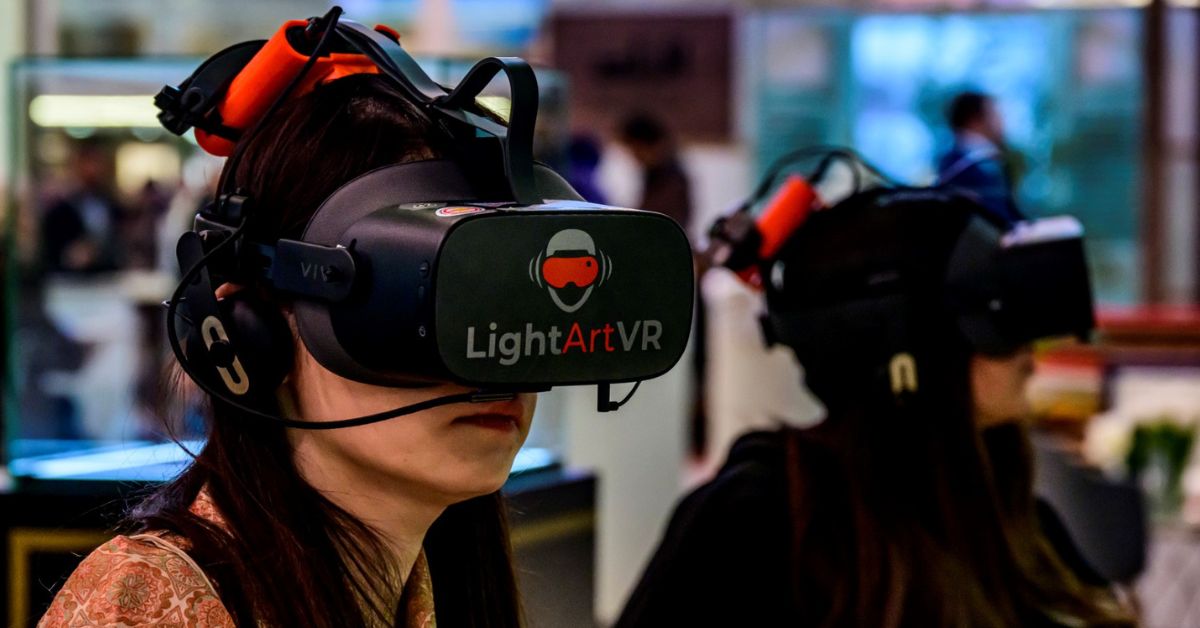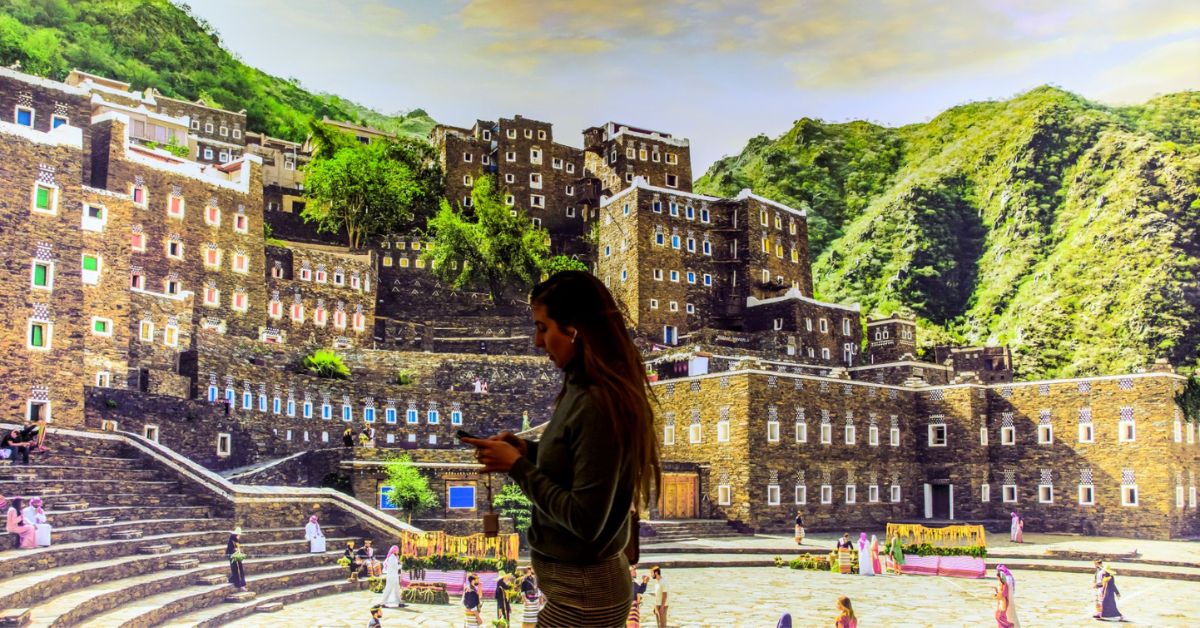RIYADH — Saudi Arabia leads globally in terms of the percentage of national technical expenditure spent on government initiatives, coming in at 21.7 percent. The Kingdom’s Digital Government Authority Governor Ahmed bin Muhammad Al-Soyyan, estimates that government spending on technology will reach up to US$ 24.7 billion by 2025.
Tourism, underpinned by technology and aligned with Vision 2030, is a critical sector. Saudi Arabia is expected to secure the 17th spot globally in terms of tourist attractions. The aim for 2023 is to attract 25 million international visitors, as pointed out by Saudi Tourism Minister Ahmed Al-Khatib. What role does digital technology play in attracting tourists, and what are the most appealing technologies?
Technology boosts tourism, said Patrick Samaha, Principal at Kearney Middle East & Africa, Government, and Economic Development Practice. “Digital transformation and technological advancements alone may not directly attract a significant number of visitors, they have the potential to enhance the overall tourist experience and increase attractiveness through various means,” he added.
In an interview with TRENDS, Samaha elaborated on technologies that boost tourism in Saudi Arabia, such as Virtual reality (VR) and augmented reality (AR), E-visa and online services, e-payment systems, and more.

The inception of e-visas and online visa processing has simplified visa applications, allowing tourists to apply from anywhere globally. Additionally, internet travel sites like Booking.com enable visitors to research, plan, and book their Saudi Arabia trips. Samaha highlighted that efforts are underway to bring a wide range of accommodation options, experiences, and trips online, improving accessibility and convenience for travelers.
VR and AR technologies enable tourists to virtually explore historical sites, cultural landmarks, and natural wonders before their visit, sparking excitement and engagement. Once there, visitors can benefit from increasingly available electronic payment systems, like Apple Pay or UnionPay. These systems simplify transactions and enhance the overall trip experience, Samaha adds.
Moreover, tourists can make use of mobile apps that provide useful information and services such as interactive maps, virtual guides, language translation, and online booking platforms for accommodations, transport, and attractions.
Tech ticks in Saudi Arabia * Technology, in alignment with Vision 2030, is playing a crucial role in boosting the tourism sector in Saudi Arabia. * Saudi Arabia launched a digital tourism strategy in February 2022 to revitalize the sector and meet the "Vision 2030" goals. * Saudi Arabia invests in innovative tourism projects, including the ambitious project of NEOM, which will showcase advanced design and digital experiences.
Samaha also mentioned that “integrating innovative technologies in hotels, airports, and tourist attractions, such as contactless check-ins, digital signage, and interactive displays, enhances convenience, efficiency, and overall visitor experience.”
Smart mobility, encompassing innovative air, road, rail, and sea connectivity, is another enticing aspect for tourists coming to Saudi Arabia, especially for those unacquainted with such technologies.
“The launch of Ceer (an electric vehicle company in Saudi Arabia), the market introduction and car production of Lucid Motors in the Kingdom, or smart mobility fleets such as air taxis (with mega-projects initiatives like NEOM investing into related e-VTOL scale-ups such as Volocopter) complement the range of compelling technologies for tourists,” Samaha shares.

In the words of Tracy Lanza, Group Head of Global Brand Development at RSG, travel is an inherently human experience. “Visitors want to engage with local people, to learn about the local culture and heritage. Wherever we introduce technology, it will always enhance that human experience rather than replace it.”
Technological advancements and digital transformation can significantly enhance the visitor experience, making travel more efficient and enjoyable through mobile apps, online booking platforms, digital payment solutions, smart destination infrastructure, and AR and VR.
In February 2022, Saudi Arabia launched its digital tourism strategy as part of the Tourism Ministry’s plans to develop the local sector. This will aid in revitalizing the Saudi tourism sector to achieve the “Vision 2030” goals. The strategy, supported by the World Tourism Organization, the World Bank, and digital partners such as Microsoft and Cisco, includes nine programs and 31 initiatives to be implemented over three years and completed by 2025.
These initiatives will accelerate the National Tourism Strategy’s objectives, expected to attract 100 million annual visits. The strategy’s implementation aims to provide a seamless experience for tourists and stakeholders to support the sector’s growth.
The focus is on several areas, including smooth travel, ease of doing business, innovation, digital travel, encouraging sustainability, informed decision-making, professional digital workforce, and attracting investors. It also plans to adopt innovative digital business models to increase demand for tourism services.

The Kingdom is already investing in tourism projects that promote innovation, the most notable being NEOM, positioned to become the world’s most ambitious tourism project. NEOM, a futuristic city under development in the northwest of the Kingdom, will showcase cutting-edge design, thrilling digital experiences, and smart cities.
NEOM, spanning 26,500 square kilometers, will extend into Egypt and Jordan. The Saudi government will invest over US$ 500 billion in the project, with an expected US$ 200 billion from local and international investors, making “NEOM” the future smart city of Saudi Arabia.
The first phase of NEOM investments totals US$ 327 billion, including government support between US$ 53.3 billion and US$ 79.9 billion and investments from the Public Investment Fund amounting to US$ 133.2 billion.







